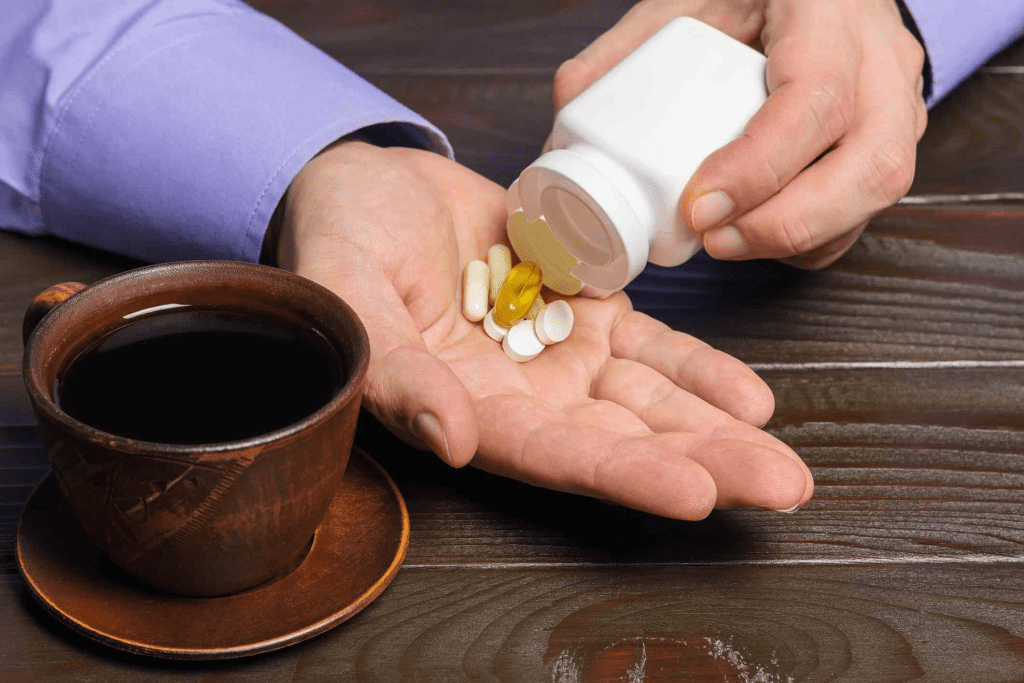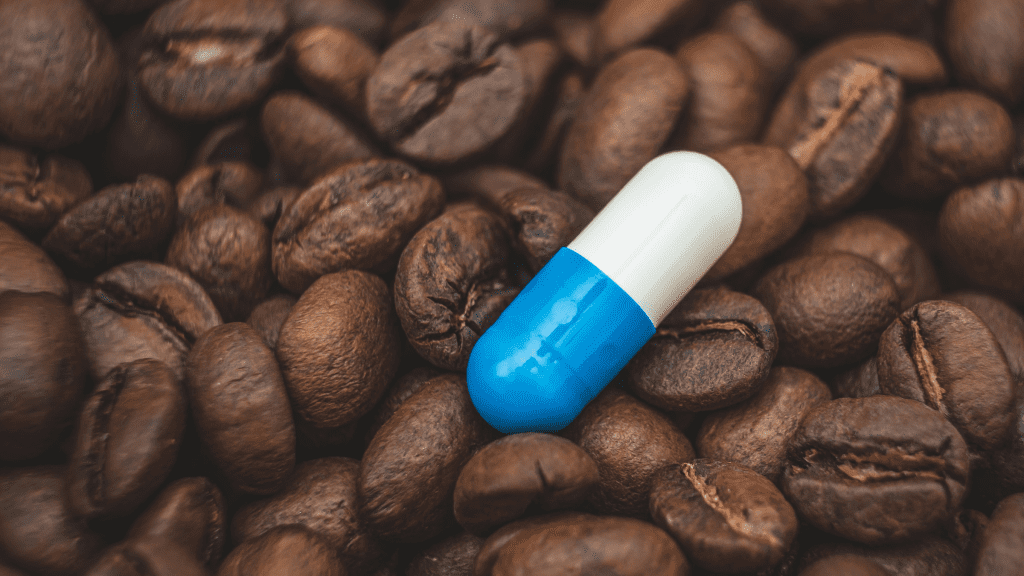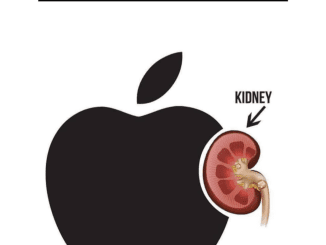Coffee is a beloved morning ritual for millions, giving us that much-needed boost to kickstart the day. But did you know that coffee, particularly its caffeine content, can interact with certain medications? In some cases, these interactions can affect the effectiveness of the medication or even lead to serious side effects. If you’re taking medication, it’s essential to understand how coffee might impact your treatment. Here are 10 medications you should never mix with coffee.
Understanding How Coffee Affects Medication

Before we dive into the list of medications, let’s look at why coffee can cause issues. Coffee contains caffeine, a stimulant that affects the central nervous system. Caffeine can alter the way the body absorbs, breaks down, and responds to certain drugs. This can lead to faster or slower absorption, increased side effects, or reduced effectiveness of the medication.
The Risks of Mixing Coffee with Medications
When coffee interacts with medication, the consequences can range from mild to severe. Some interactions may make the medication less effective, while others could cause side effects like increased heart rate, high blood pressure, or stomach issues. Here’s a closer look at 10 medications that shouldn’t be mixed with coffee.
1. Antidepressants and Coffee
Antidepressants, especially monoamine oxidase inhibitors (MAOIs), can have a dangerous reaction with caffeine. MAOIs and caffeine both increase blood pressure. When combined, they may cause a spike in blood pressure, posing a risk for people with cardiovascular issues. If you’re on an MAOI, it’s wise to limit your coffee intake or avoid it altogether.
2. Antipsychotics and Coffee
Antipsychotic medications, such as clozapine, can interact negatively with caffeine. Caffeine speeds up the metabolism of certain antipsychotics, reducing their effectiveness and potentially leading to treatment setbacks. If you’re taking antipsychotics, discuss your caffeine intake with your healthcare provider.
3. Blood Thinners and Coffee
For those on blood thinners like warfarin, caffeine can amplify the drug’s effects, increasing the risk of bleeding. Blood thinners make it harder for blood to clot, and too much caffeine can interfere with this process, making bleeding more likely. To be safe, limit coffee intake if you’re on a blood thinner and always follow your doctor’s advice.
4. Thyroid Medications and Coffee
Thyroid medications, like levothyroxine, help regulate hormone levels. Drinking coffee too soon after taking these medications can reduce their absorption, making them less effective. To ensure the best absorption, it’s recommended to wait at least 30 to 60 minutes after taking your thyroid medication before drinking coffee.
5. Antibiotics and Coffee
Certain antibiotics, such as ciprofloxacin, can interact with caffeine, leading to heightened side effects like jitteriness, restlessness, and even insomnia. Caffeine may also reduce the effectiveness of some antibiotics. If you’re on an antibiotic, ask your healthcare provider if you need to adjust your caffeine intake.
6. Osteoporosis Medications and Coffee

Osteoporosis medications, like bisphosphonates, are essential for bone health. However, coffee can interfere with the absorption of these medications. Experts recommend taking osteoporosis drugs with plain water and avoiding coffee for at least 30 minutes after taking the medication to ensure proper absorption.
7. Heart Medications and Coffee
Heart medications, such as beta-blockers, work to manage heart rate and blood pressure. Caffeine can counteract these effects, potentially causing a rise in blood pressure and heart rate. If you’re on heart medication, it’s crucial to monitor your coffee consumption and consult with your cardiologist.
8. Antihistamines and Coffee
Antihistamines, commonly used to treat allergies, can cause drowsiness. Caffeine can amplify this effect, leading to excessive drowsiness, impaired coordination, and even dizziness. If you need to stay alert, be cautious with coffee when taking antihistamines, or consider reducing your caffeine intake.
9. Anti-Anxiety Medications and Coffee

Anti-anxiety medications, like benzodiazepines, help calm the nervous system. Caffeine, however, does the opposite—it can increase anxiety and make it harder to relax. This can counteract the calming effects of anti-anxiety drugs, reducing their effectiveness. If you’re managing anxiety, consider limiting or eliminating caffeine to avoid exacerbating symptoms.
10. Pain Relievers and Coffee
Some pain relievers, like aspirin and ibuprofen, can cause stomach irritation, especially with prolonged use. Adding coffee to the mix may increase the risk of stomach problems, as caffeine itself can irritate the stomach lining. While some pain relievers actually contain caffeine to enhance their effects, drinking extra coffee can lead to increased heart rate, acid reflux, and digestive discomfort.
General Guidelines for Coffee Consumption with Medications
If you’re taking any medication, it’s a good idea to follow a few simple guidelines to avoid negative interactions with coffee:
- Check with Your Doctor: Before drinking coffee, especially if you’re on medication, consult with your healthcare provider to ensure it won’t interfere with your treatment.
- Time Your Coffee Right: Space out your coffee consumption from your medication intake. Some drugs work best on an empty stomach, while others should be taken with food. Ask your doctor or pharmacist for specific advice.
- Monitor Side Effects: If you notice unusual symptoms after mixing coffee with your medication, such as jitteriness, heart palpitations, or stomach discomfort, it may be a sign of an interaction. Track these symptoms and discuss them with your healthcare provider.
Conclusion: Stay Safe by Knowing When to Skip the Coffee
Coffee is a delightful pick-me-up for many, but it’s important to be mindful of its potential interactions with medications. By understanding the effects of caffeine on your body and consulting with healthcare professionals, you can enjoy your coffee without compromising your health. Remember, it’s always better to be cautious—especially when it comes to something as essential as your medication. So next time you reach for that cup of coffee, think about whether it’s safe to mix it with your medication, and enjoy your brew responsibly.


